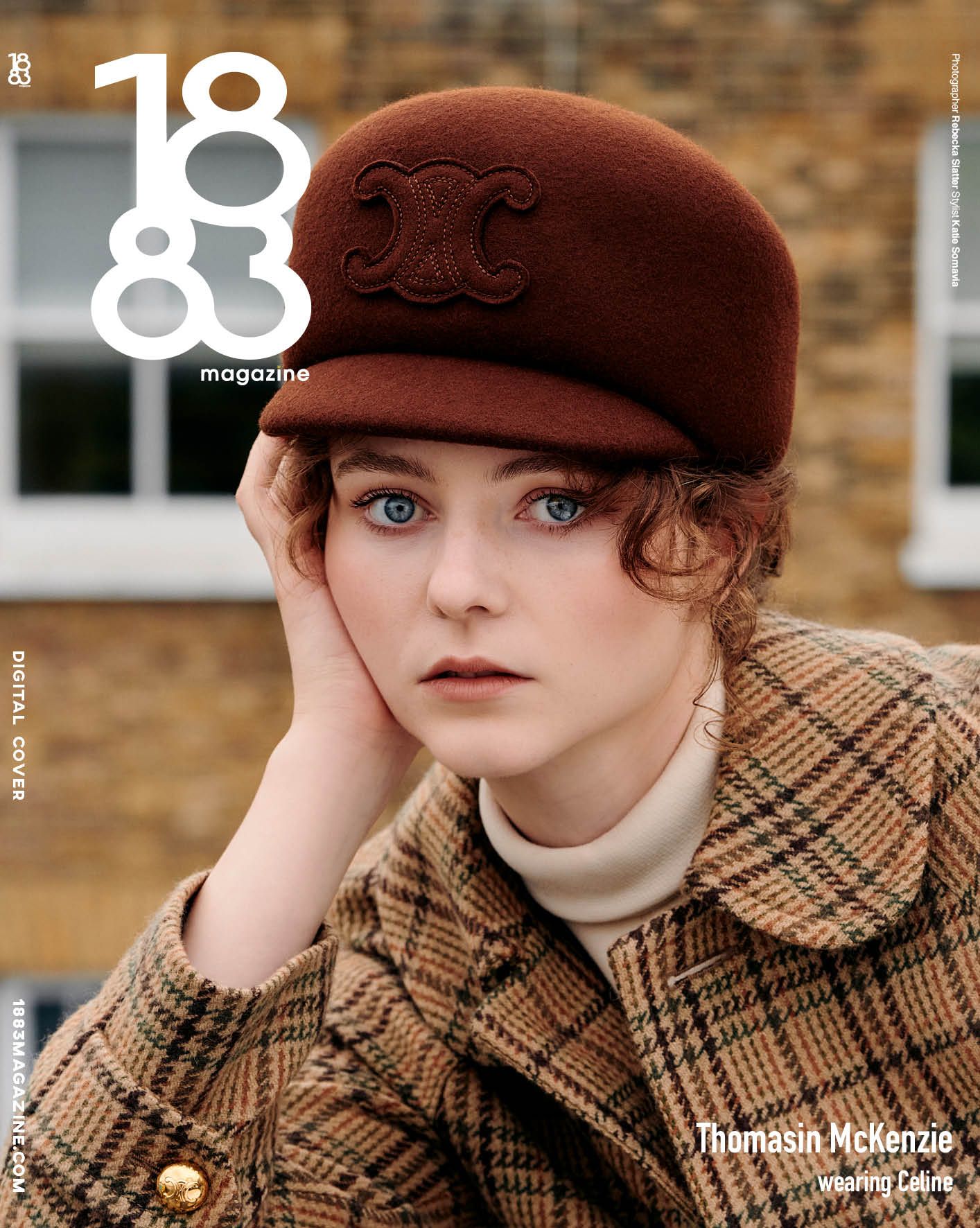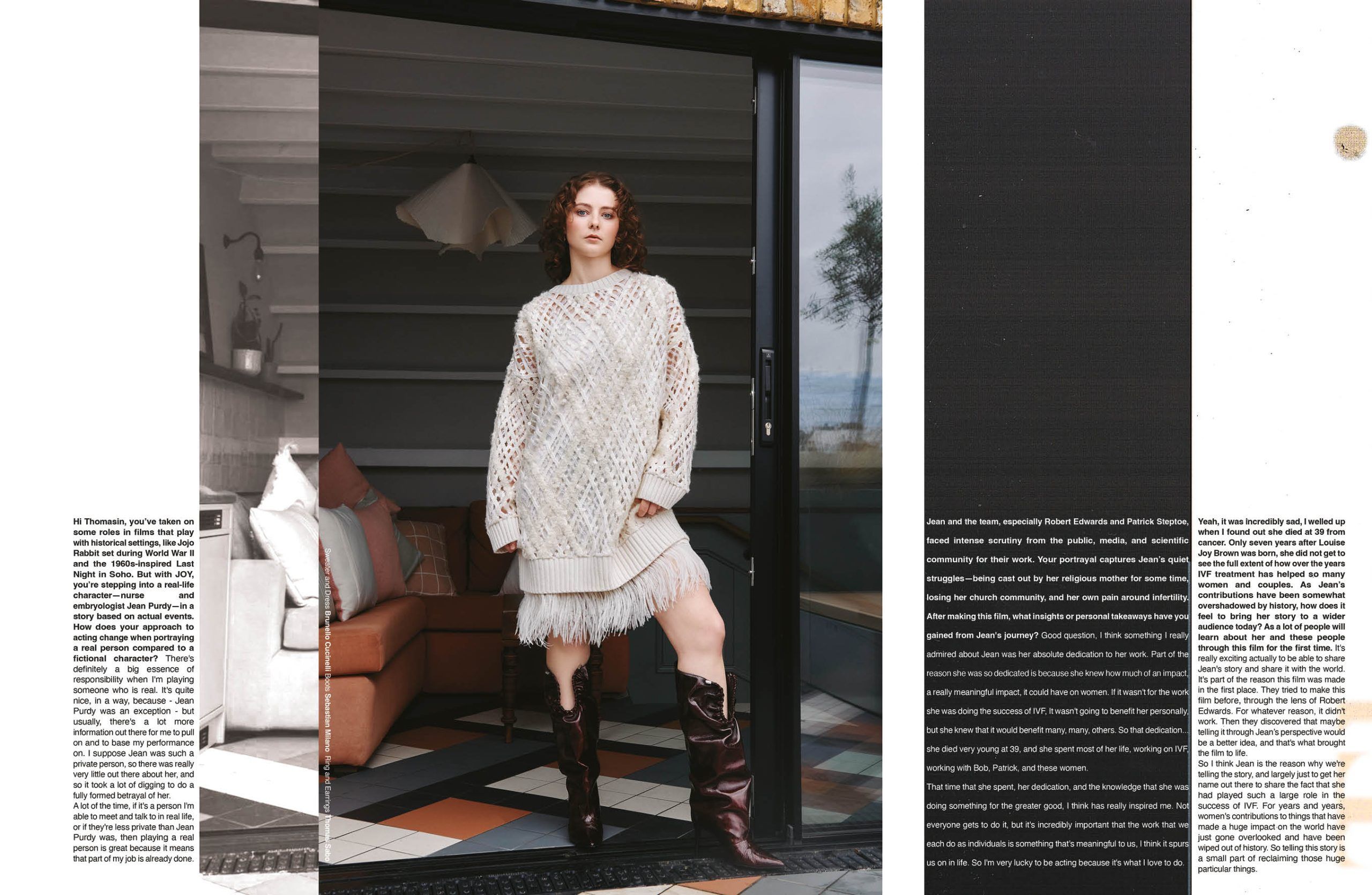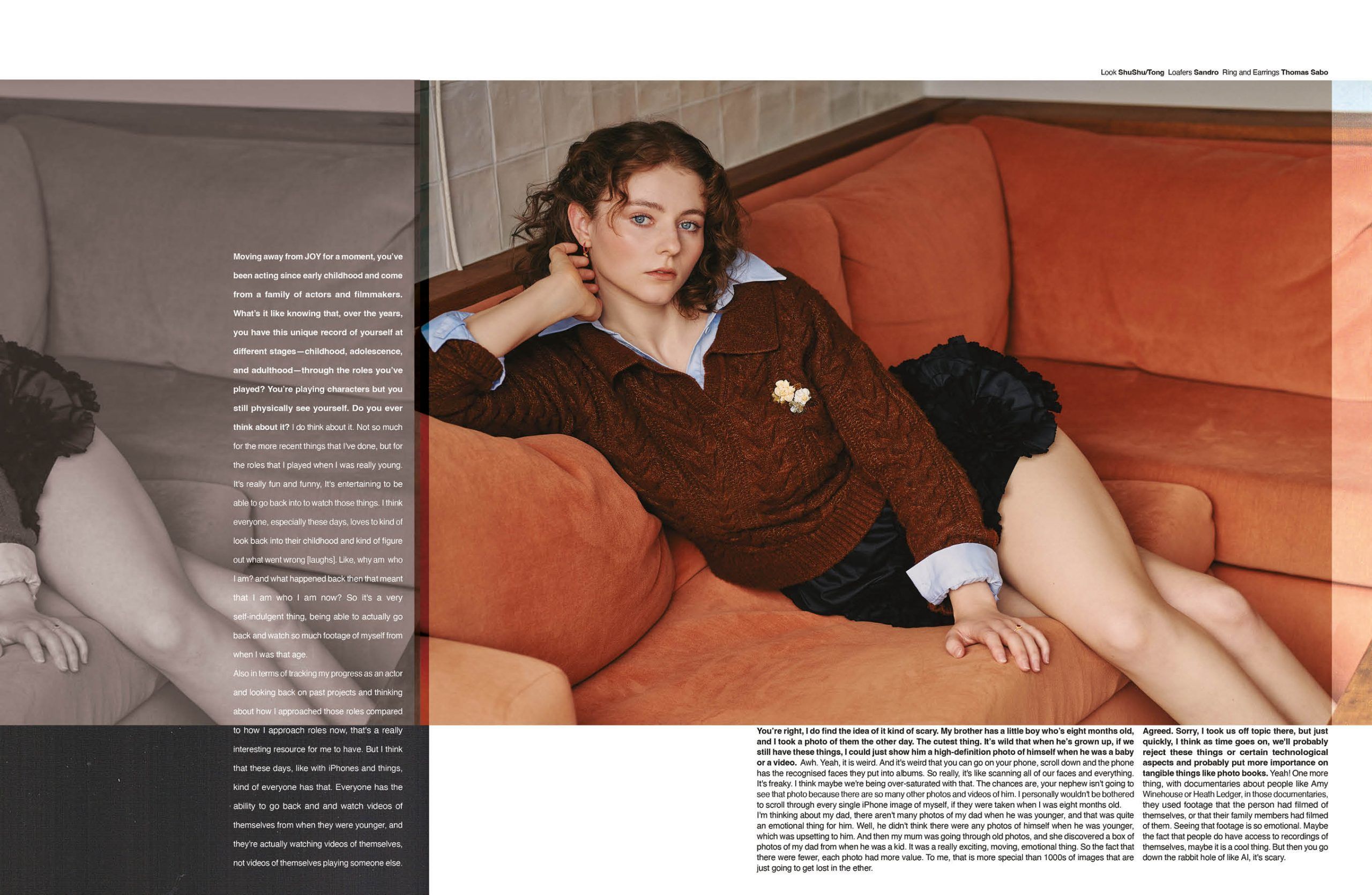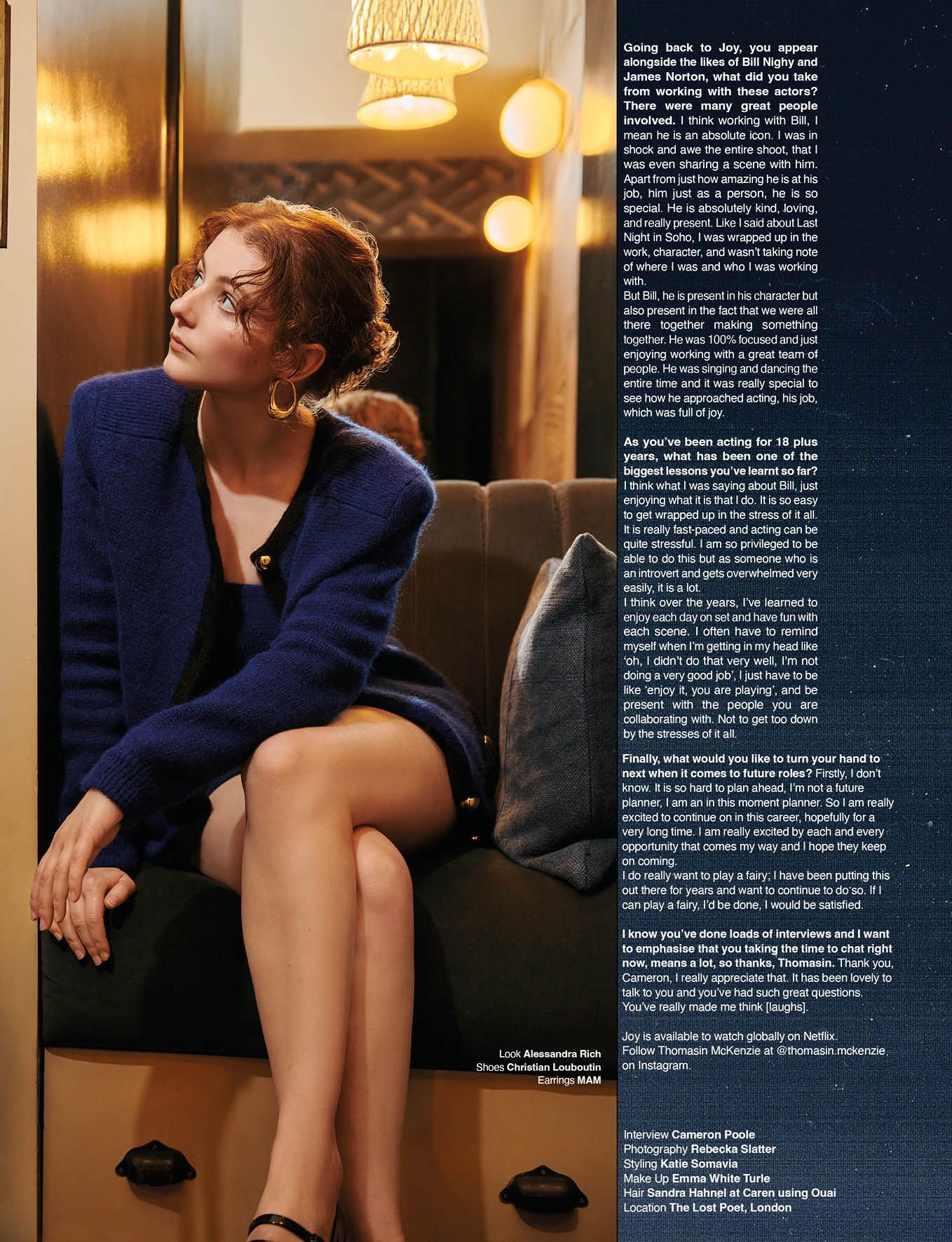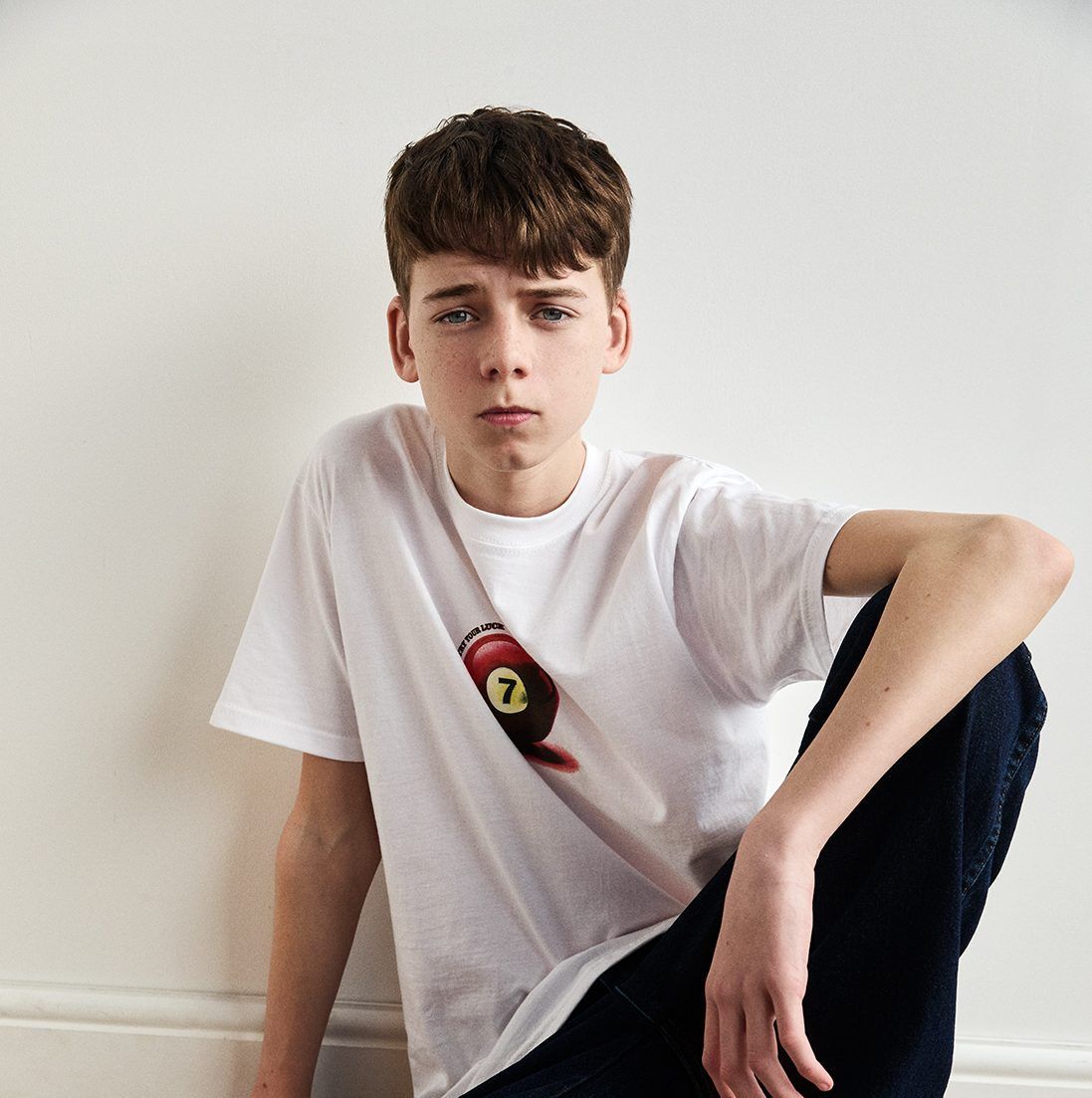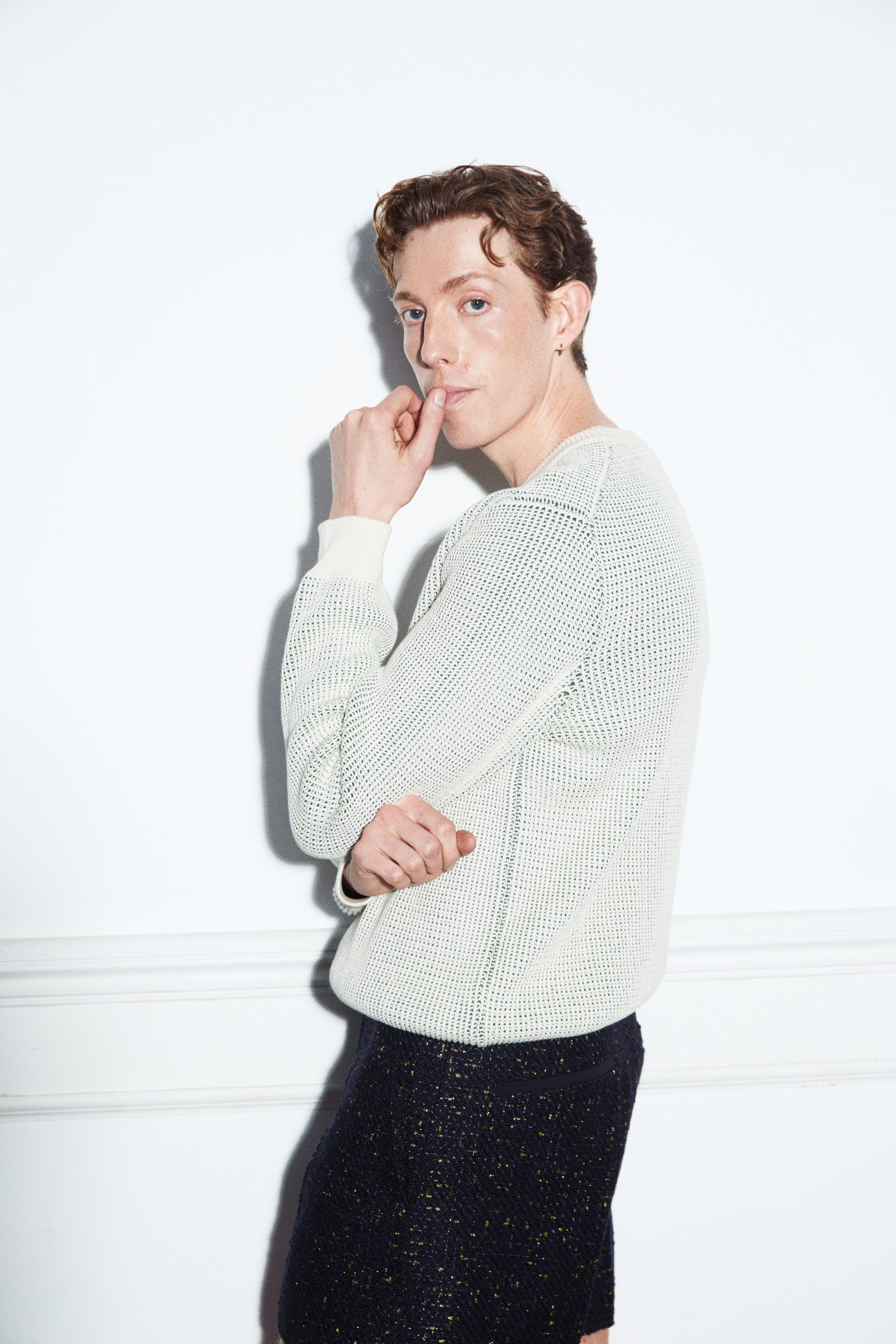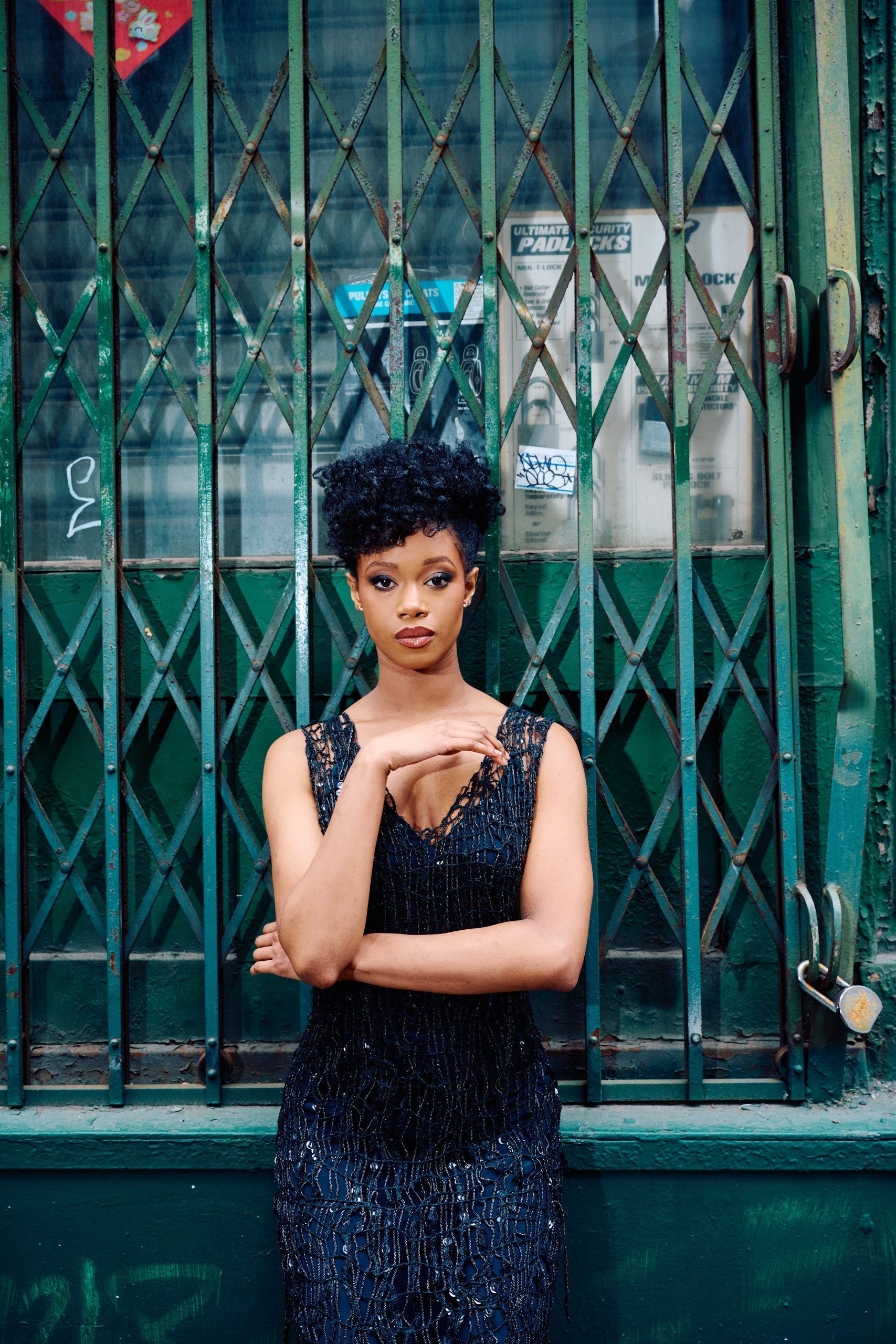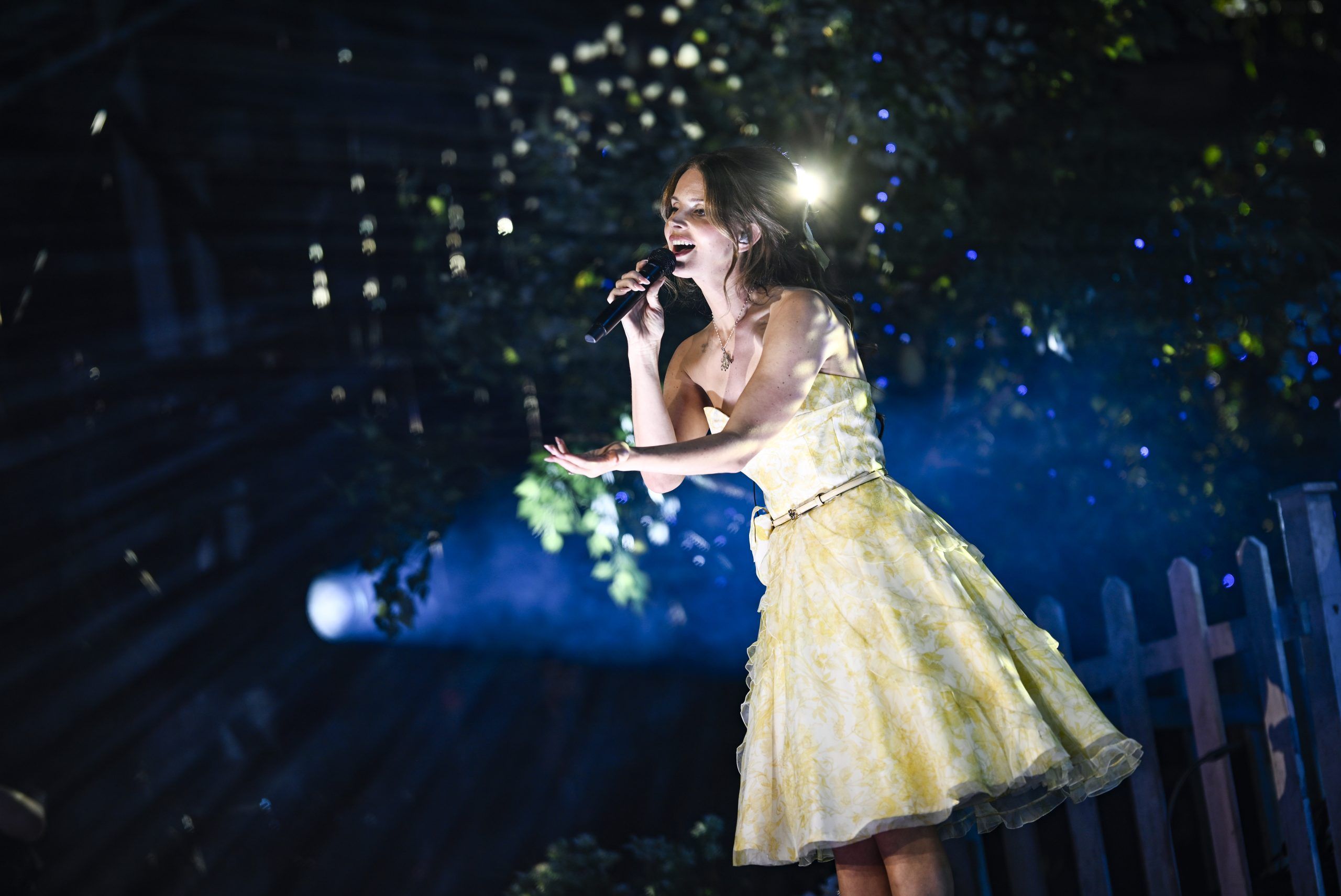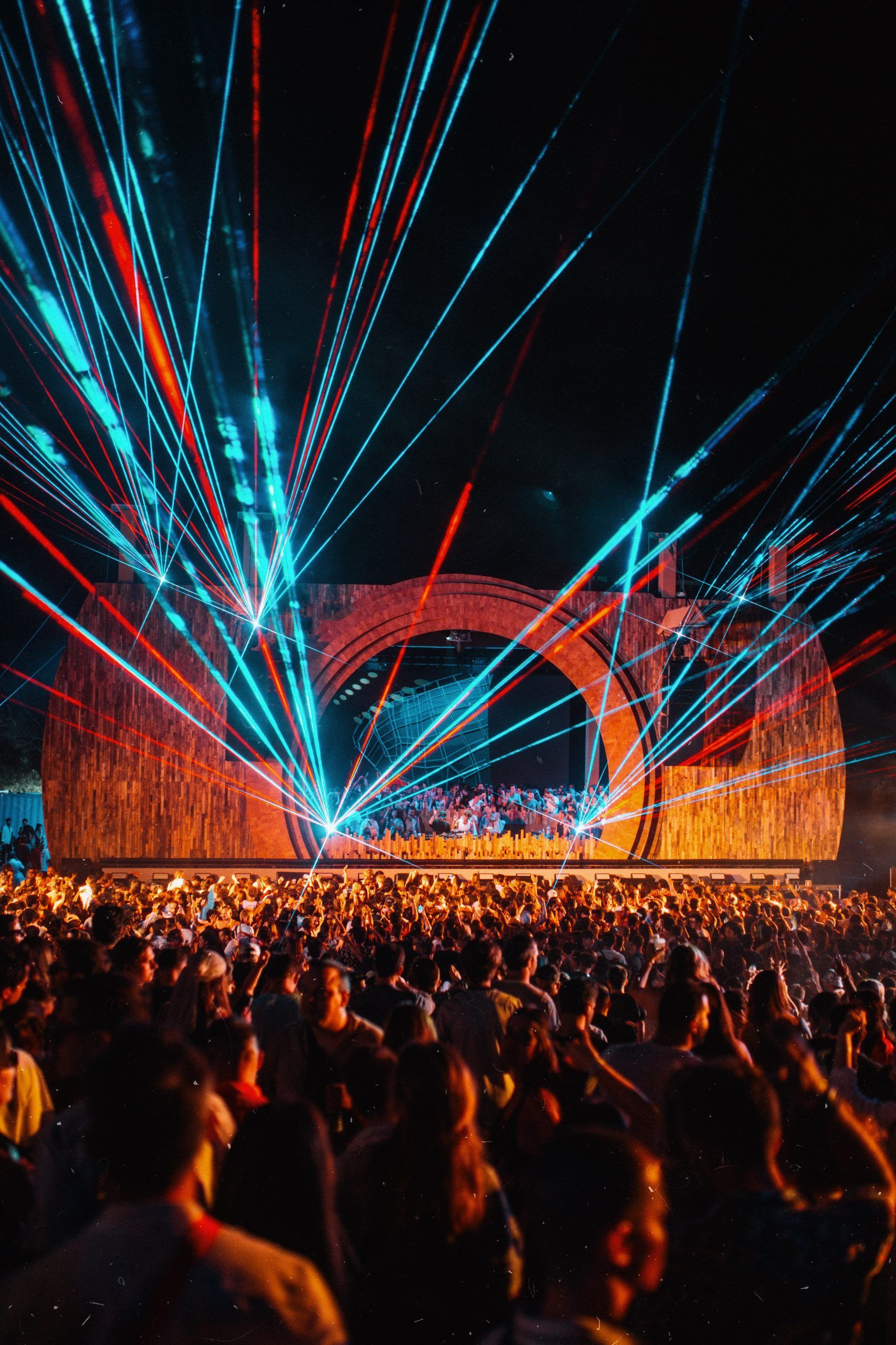New Zealander Thomasin McKenzie is a versatile actor who attentively approaches her craft with elegance and vigour.
Having acted for most of her life, as she tells me during a chilly November Zoom call from Liverpool, McKenzie’s steady rise feels entirely natural. Coming from a family of actors and filmmakers, acting has always been a constant in the 24-year-old’s life. Her first official film role came at the age of seven in 2012’s Existence, though she had already appeared in smaller roles before. From there, McKenzie enjoyed a stint on New Zealand’s most popular TV soap opera, Shortland Street. Fast forward to 2018, she gained recognition for her appearance in Debra Granik’s drama flick, Leave No Trace.
Further supporting roles in Netflix’s The King, Taika Waititi’s 2019 satirical comedy-drama Jojo Rabbit, and M. Night Shyamalan’s thriller Old helped push the actor to the forefront of the gifted actors’ conversation. Yet standout lead performances in Edgar Wright’s exceptional 2021 psychological horror Last Night in Soho, and last year’s Eileen alongside Anne Hathaway, McKenzie has firmly cemented herself as one of the most exciting acting talents around.
In every role, no matter how big or small, the New Zealander has brought energy, enthusiasm and seemingly innate talent to the screen. For someone who seems destined to be the ‘next big thing’, and rightfully so, it’s also a pleasure to see she’s as down to earth and genuine as they come. There are no airs or graces about this actor – she’s well aware and grateful for the position she finds herself in. Off-screen, she is using her well-earned platform to help champion social good by advocating charities like So They Can.
When it comes to her latest film project, the actor has taken on an important real-life figure. In Joy, McKenzie plays the lead role of British nurse and embryologist Jean Purdy as she works alongside scientist Robert Edwards (actor James Norton) and surgeon Patrick Steptoe (actor Bill Nighy) – the founders of IVF treatment. The film details the remarkable true story behind the ground-breaking birth of Louise Joy Brown in 1978, the world’s first ‘test-tube baby’ and the journey to make it possible.
Throughout Joy, McKenzie superbly portrays Jean’s quiet struggles as she deals with being cast out by her family, shunned by her Christian community, and her own infertility woes. Alongside a stellar cast and directing from Ben Taylor, It’s a beautiful film that shines a light on the vital work carried out by a small, determined group whilst society scrutinised them for it. Ultimately, it’s another prime example of why it’s only a matter of time before this actor becomes a household name.
In conversation with 1883 Magazine’s Cameron Poole, Thomasin McKenzie discusses Joy, the unique perspective of being able to look back at her youth on the big screen, almost getting arrested on the way to the Cannes Film Festival, and more.
Download Thomasin’s full cover story
Hi Thomasin, you’ve taken on some roles in films that play with historical settings, like Jojo Rabbit set during World War II and the 1960s-inspired Last Night in Soho. But with JOY, you’re stepping into a real-life character—nurse and embryologist Jean Purdy—in a story based on actual events. How does your approach to acting change when portraying a real person compared to a fictional character?
There’s definitely a big essence of responsibility when I’m playing someone who is real. It’s quite nice, in a way, because – Jean Purdy was an exception – but usually, there’s a lot more information out there for me to pull on and to base my performance on. I suppose Jean was such a private person, so there was really very little out there about her, and so it took a lot of digging to do a fully formed betrayal of her.
A lot of the time, if it’s a person I’m able to meet and talk to in real life, or if they’re less private than Jean Purdy was, then playing a real person is great because it means that part of my job is already done.
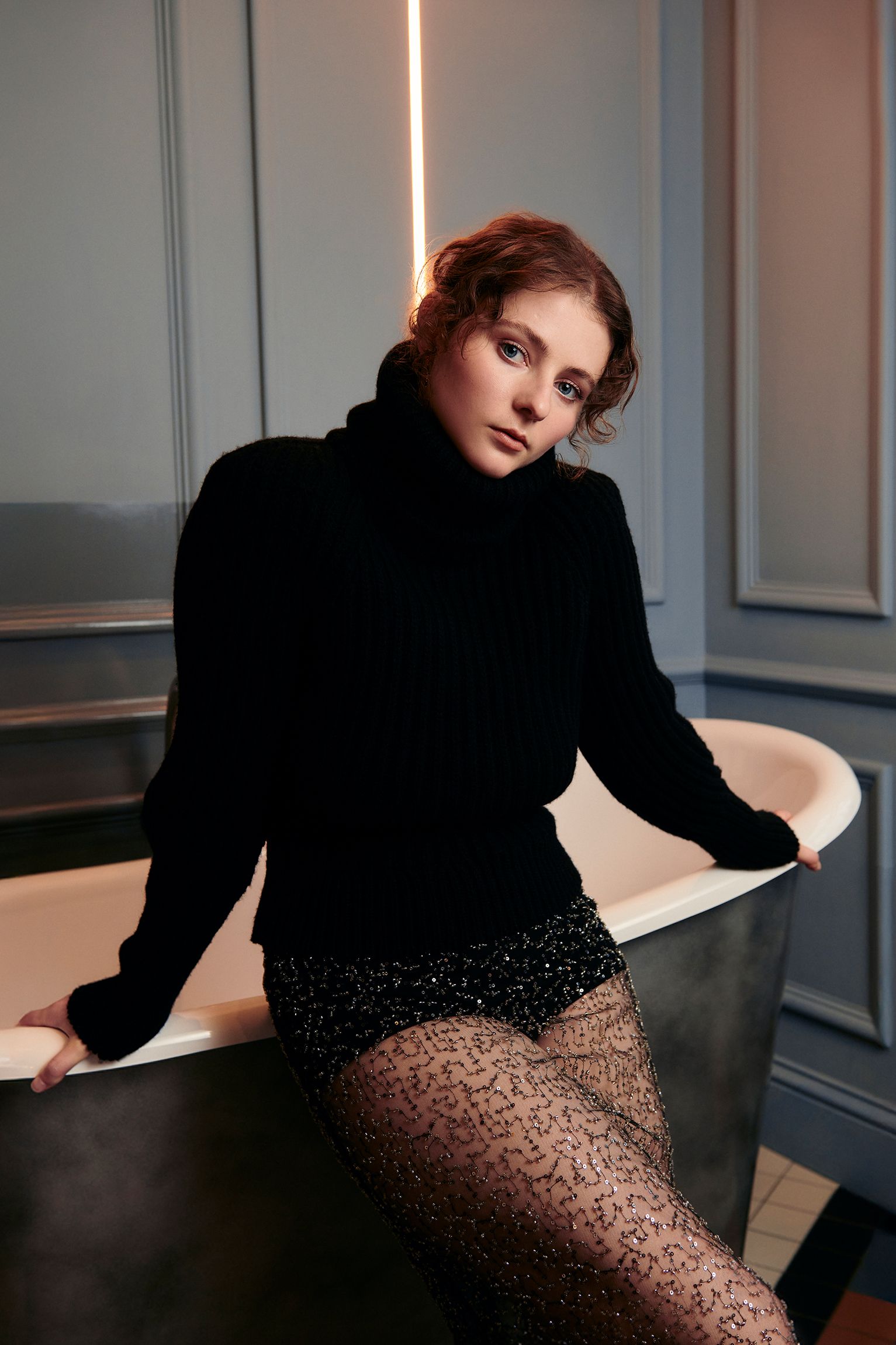
Jean and the team, especially Robert Edwards and Patrick Steptoe, faced intense scrutiny from the public, media, and scientific community for their work. Your portrayal captures Jean’s quiet struggles—being cast out by her religious mother for some time, losing her church community, and her own pain around infertility. After making this film, what insights or personal takeaways have you gained from Jean’s journey?
Good question, I think something I really admired about Jean was her absolute dedication to her work. Part of the reason she was so dedicated is because she knew how much of an impact, a really meaningful impact, it could have on women. If it wasn’t for the work she was doing the success of IVF, It wasn’t going to benefit her personally, but she knew that it would benefit many, many, others. So that dedication… she died very young at 39, and she spent most of her life, working on IVF, working with Bob, Patrick, and these women.
That time that she spent, her dedication, and the knowledge that she was doing something for the greater good, I think has really inspired me. Not everyone gets to do it, but it’s incredibly important that the work that we each do as individuals is something that’s meaningful to us, I think it spurs us on in life. So I’m very lucky to be acting because it’s what I love to do.
Yeah, it was incredibly sad, I welled up when I found out she died at 39 from cancer. Only seven years after Louise Joy Brown was born, she did not get to see the full extent of how over the years IVF treatment has helped so many women and couples. As Jean’s contributions have been somewhat overshadowed by history, how does it feel to bring her story to a wider audience today? As a lot of people will learn about her and these people through this film for the first time.
It’s really exciting actually to be able to share Jean’s story and share it with the world. It’s part of the reason this film was made in the first place. They tried to make this film before, through the lens of Robert Edwards. For whatever reason, it didn’t work. Then they discovered that maybe telling it through Jean’s perspective would be a better idea, and that’s what brought the film to life.
So I think Jean is the reason why we’re telling the story, and largely just to get her name out there to share the fact that she had played such a large role in the success of IVF. For years and years, women’s contributions to things that have made a huge impact on the world have just gone overlooked and have been wiped out of history. So telling this story is a small part of reclaiming those huge particular things.

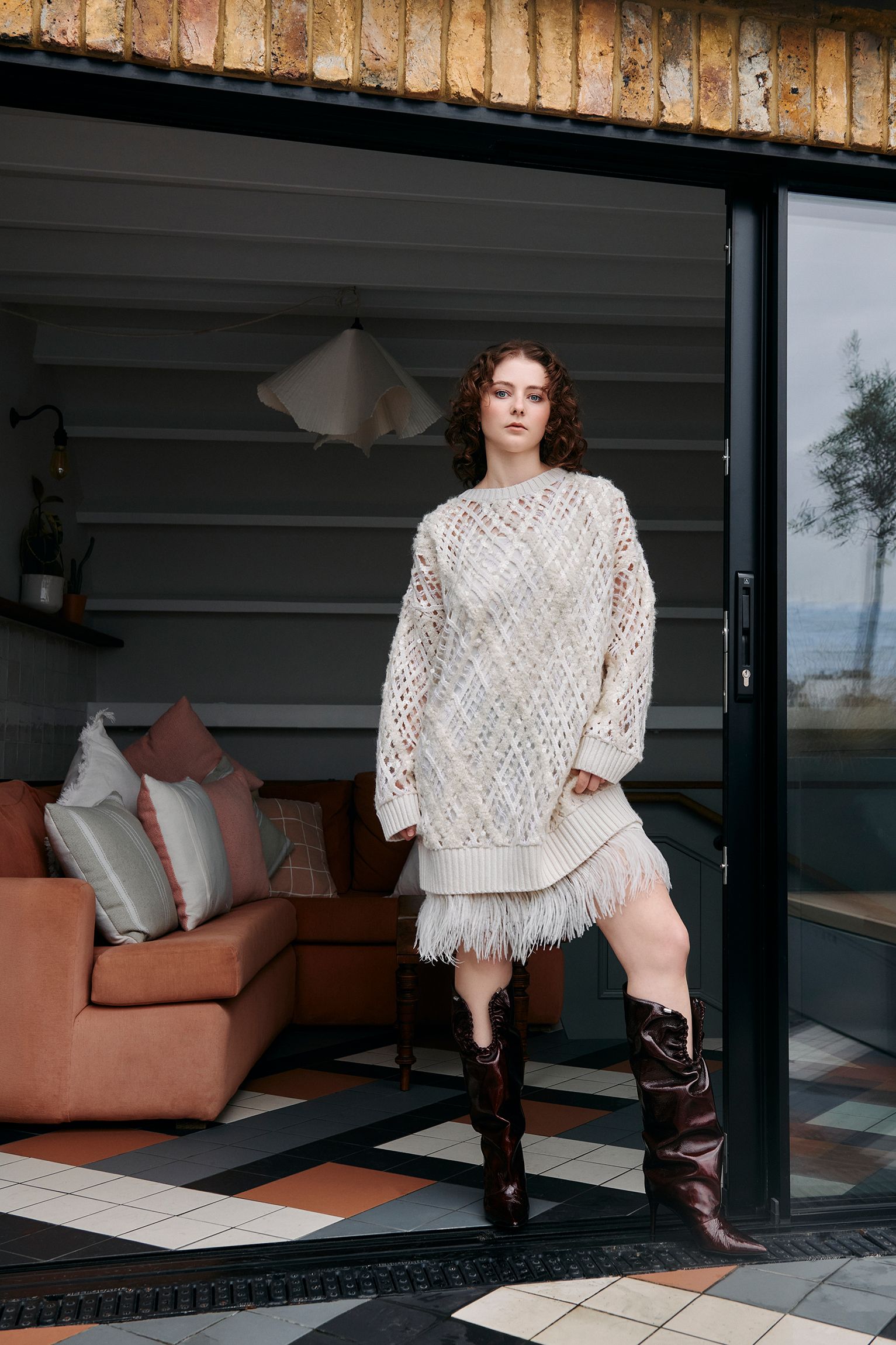
Moving away from JOY for a moment, you’ve been acting since early childhood and come from a family of actors and filmmakers. What’s it like knowing that, over the years, you have this unique record of yourself at different stages—childhood, adolescence, and adulthood—through the roles you’ve played? You’re playing characters but you still physically see yourself. Do you ever think about it?
I do think about it. Not so much for the more recent things that I’ve done, but for the roles that I played when I was really young. It’s really fun and funny, It’s entertaining to be able to go back into to watch those things. I think everyone, especially these days, loves to kind of look back into their childhood and kind of figure out what went wrong [laughs]. Like, why am who I am? and what happened back then that meant that I am who I am now? So it’s a very self-indulgent thing, being able to actually go back and watch so much footage of myself from when I was that age.
Also in terms of tracking my progress as an actor and looking back on past projects and thinking about how I approached those roles compared to how I approach roles now, that’s a really interesting resource for me to have. But I think that these days, like with iPhones and things, kind of everyone has that. Everyone has the ability to go back and and watch videos of themselves from when they were younger, and they’re actually watching videos of themselves, not videos of themselves playing someone else.
You’re right, I do find the idea of it kind of scary. My brother has a little boy who’s eight months old, and I took a photo of them the other day. The cutest thing. It’s wild that when he’s grown up, if we still have these things, I could just show him a high-definition photo of himself when he was a baby or a video.
Aw. Yeah, it is weird. And it’s weird that you can go on your phone, scroll down and the phone has the recognised faces they put into albums. So really, it’s like scanning all of our faces and everything. It’s freaky. I think maybe we’re being over-saturated with that. The chances are, your nephew isn’t going to see that photo because there are so many other photos and videos of him. I personally wouldn’t be bothered to scroll through every single iPhone image of myself, if they were taken when I was eight months old.
I’m thinking about my dad, there aren’t many photos of my dad when he was younger, and that was quite an emotional thing for him. Well, he didn’t think there were any photos of himself when he was younger, which was upsetting to him. And then my mum was going through old photos, and she discovered a box of photos of my dad from when he was a kid. It was a really exciting, moving, emotional thing. So the fact that there were fewer, each photo had more value. To me, that is more special than 1000s of images that are just going to get lost in the ether.
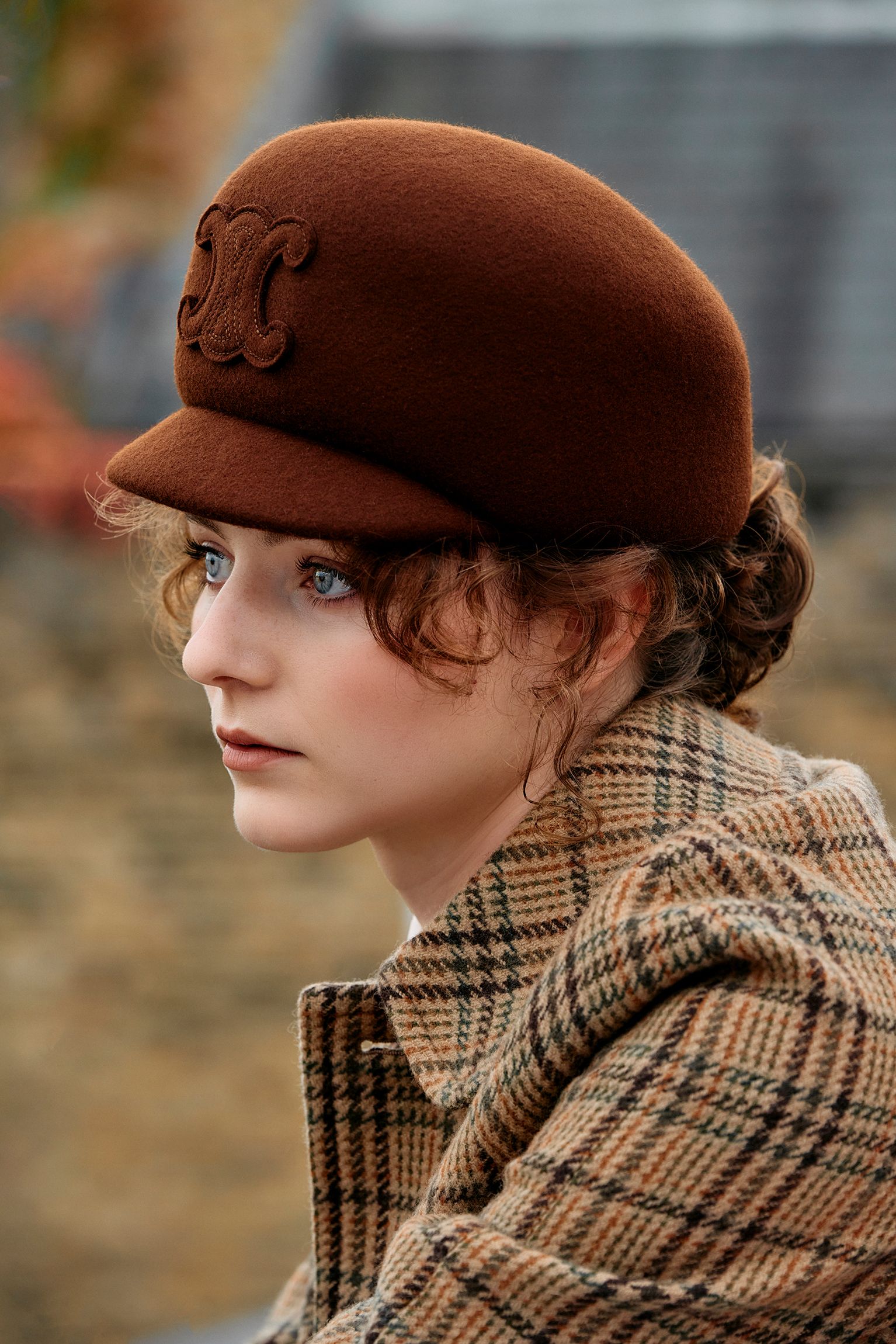

Agreed. Sorry, I took us off topic there, but just quickly, I think as time goes on, we’ll probably reject these things or certain technological aspects and probably put more importance on tangible things like photo books.
Yeah! One more thing, with documentaries about people like Amy Winehouse or Heath Ledger, in those documentaries, they used footage that the person had filmed of themselves, or that their family members had filmed of them. Seeing that footage is so emotional. Maybe the fact that people do have access to recordings of themselves, maybe it is a cool thing. But then you go down the rabbit hole of like AI, it’s scary.
I know right, What a time to be alive! [laughs]
Yeah [laughs].
Just to make it more lighthearted, If someone is visiting your home country of New Zealand for the first time, what would you recommend as the first thing someone should eat or do?
Okay, so this reminds me as I’m supposed to write a list of things to do for a friend who’s visiting New Zealand. So I am going to do that after this. The first thing is, if you are visiting Wellington, where I am from, I would recommend that you immediately go to Queen Sally’s Diamond Deli, which is like a five-minute drive from the airport to Lyall Bay Parade.
Get one of their salads and one of their vegan cheese scones, they’re really good. Even if you’re not vegan, they’re really good. I would definitely recommend that you do that and then go on a walk that takes you to a high point, and enjoy a beautiful outlook of the city.
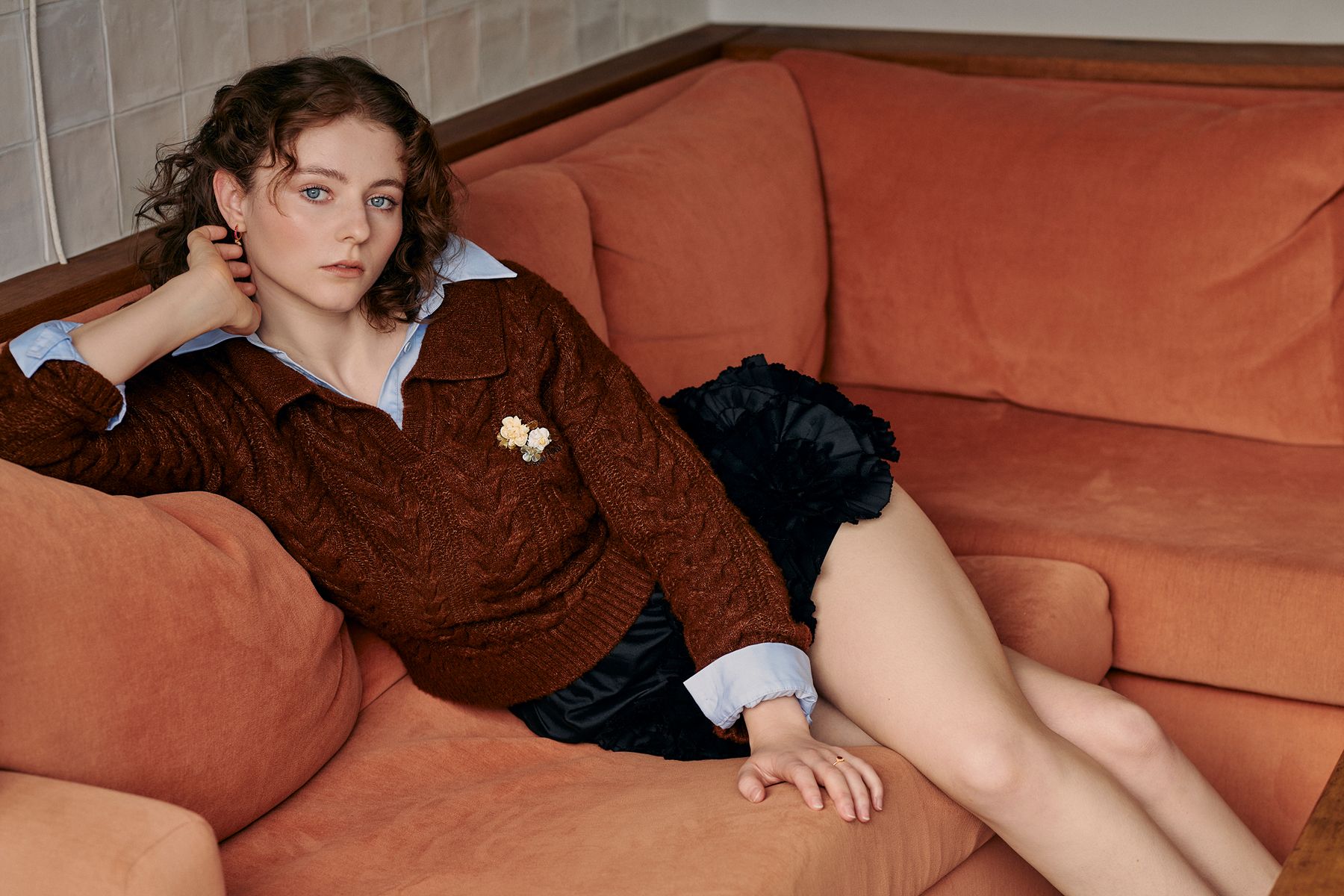
Look ShuShu/Tong Ring and Earrings Thomas Sabo
As a music fan, tell me about your experience of going to watch a Taylor Swift Eras Tour concert in August…
Oh my gosh. It was… I can’t even put into words how crazy it was. I think for the first half I was like in absolute shock. And then for the second half, I was kind of present and enjoying myself. and by the end, I was like, ‘wait, I didn’t actually get a chance to acknowledge the fact that I’m here, that Taylor Swift is right there’. I wanted to do it all again, because most of that was just kind of like ‘what is going on’, especially since halfway through the show, I got a letter from Taylor Swift herself. Like hand-delivered to me.
The fact that she even knew that I was there, it was incredible. I got to take my good friend Charlotte, who’s a big Taylor Swift Fan and just to see the excitement and joy on her face was pretty fantastic.
That is so wholesome, I love that. I imagine the letter is framed and kept somewhere special.
Oh yeah! It’s pretty exciting whenever someone comes around to my flat, who is a Taylor Swift Fan, pulling out that letter and being like ‘check this out’ and seeing their reaction. It’s pretty special.
Who else are you into music-wise?
One of my favourite songs ever is “Vienna” by Billy Joel. So I’d say if I could, see that live, that would be just a huge moment. I love Aurora, her song “Exist For Love”, I really love that. Lorde, Marlon Williams, who’s a New Zealand singer. I’m big into Sabrina Carpenter right now. Gosh, who am I listening to? Benson Boone I’ve gotten into recently.
I’m filming in Liverpool, so I’ve been listening to a lot of The Beatles. You know how on Spotify you can listen to all the songs that you’ve liked in the past, I’ve been doing that recently, going back and just reminding myself of some really great songs.

I was trying to work out if you have a film camera, as you have some great shots on your Instagram from your travels, they’re cool. Do you have a camera you bring on your travels?
Aw, thank you, I do. My boyfriend and I have been getting really into film photography recently. Well, he’s kind of been getting me more into it. So I’ve got a little Olympus. My boyfriend has a film camera. I can’t remember the model or whatever, and that takes really amazing, high-quality images. This one, for some reason, light keeps getting into it, so the images come out a bit dodgy. But It’s lots of fun.
I mean, this takes us back to our conversation about iPhone photos, with film photos, It’s so exciting when you take them to get developed and seeing what you’ve got. Sometimes it’s really disappointing, and sometimes you get little gems. My boyfriend and I have a film photography account on Instagram called ‘gateisgood’ that we’ve been sharing a lot of photos on recently.
Fantastic, nice account plug as well [laughs]. When it comes to platforms, It’s really lovely to see you use yours for social good, for example, through your ambassadorship for So They Can. What led you to get involved with the organisation and is there anything you want our readers to know about?
I have been involved with So They Can since I was about 17 or 18, because the CEO, Cassandra Treadwell, she was an old girl at my old school, so she came to give us a talk one day, and I was just really inspired by her. My mum also went to my old school, so there was that connection there and she knew Cassandra and I think my mum had already kind of done some ambassadorial kind of stuff with So They Can. So for me, it was a very natural thing to start working with them. For me, doing things like that, having the longevity, like a long-standing relationship with an organisation, is really important. I see, and this isn’t judging, I’m not saying it’s bad, but you see a lot on social media, people kind of picking up on trends of social causes. That just never really sits right with me.
So working with an organisation where I really know what they’re about, and I’ve met the people, I’ve been there, I’ve been to the places that the communities that they’re working with. To the people that they’re working with, it really means a lot. The work that So They Can does is incredible. I went to Kenya with them last year and visited a few of the schools that they’ve just started working with, and a few schools that they’ve been working with for years. It was really amazing to see the differences between the schools that were only just receiving their support and the schools that had been supported for years. Seeing the difference in the facilities, the quality of education and the work that they do to prevent female genital mutilation is absolutely so important. Preventing those girls from being harmed by talking to the parents, making sure the girls are in school, and providing the families with other ways of making money. It’s really amazing work.

Yeah, there are certain trends that get jumped on and it seems disingenuous. I wanted to help shine a light on that because it is authentic and genuine – it’s nice to see someone with a platform do something like that.
Thank you. Sometimes it’s tricky knowing what you have a right to speak on and what you don’t, and where feels right for me to lend my voice to or to be involved with. I’m really proud of the work that I’ve done with So They Can, it’s just an organisation that truly is doing so much good.
Throughout your career, you’ve done a lot of travelling, part of the career. Cast your mind back to the Cannes Film Festival in 2018; you were over there for Leave No Trace. You almost, according to yourself, got arrested in Cannes or something, what happened?
I’m impressed that you know about this [laughs]. Basically, it’s so stupid. I was 18. I was traveling. I’d been all throughout America, and had just arrived for the very first time in London with my family. I’d never been to Europe before. This was my very first time stepping on British soil. We were going through the security and my bag was pulled aside. Keep in mind, we’d been all throughout America at this point, and then my bag hadn’t been taken aside at all. So I’m waiting for them to go through it. I was thinking I must have just forgotten to empty my water bottle or something. That’s usually what’s happened. So the security, the person goes through my bag, they can’t find anything. They’re zipping it out. They take one last glance at the X-ray screen, and they’re like ‘no, there really is, there’s something in there’.
So they open my bag up again, and they find this little pouch that is attached. It’s like a key chain. It’s attached to the zip on my bag. And they opened up the pouch and they pulled out a bullet. He kind of pulled it out and held it up, and he was like, ‘what are you doing with this?’ And I just completely lost all words. It was like my tongue had been cut out. I just didn’t know what to say. I just immediately start crying. My dad comes over and asks what is going on. It turned out that all the way back in New Zealand, I had been out with my boyfriend at his family farm, and I had found a bullet on the ground in a field, and I picked it up, and I thought, ‘Ah, this is really cool.’ I kind of kept it as a memento and just put it in a pouch in my bag and completely forgot about it. Cut to a few months later, there it is.
So they took my passport, they called the police that were in the airport, and they come over to us and they’re questioning me, like, ‘why the hell do you have this?’ And I kind of managed to get that story out, and my dad being the incredible person that he is, he just starts absolutely charming the police. He’s like, ‘you guys are incredible. Like, they didn’t pick up on this in America. Like, you guys are so good at your job’, he asks to get a photo with the police. So I’m there, my eyes are super puffy and red because I had been sobbing, and the police are flanking me on either side, and then my little sister, who would have been six or seven at the time, she’s standing in the middle, beaming, super excited. And because of all that charming, the police were like, ‘Okay, we’ll let you go on this one, but don’t do it again.’ [laughs].
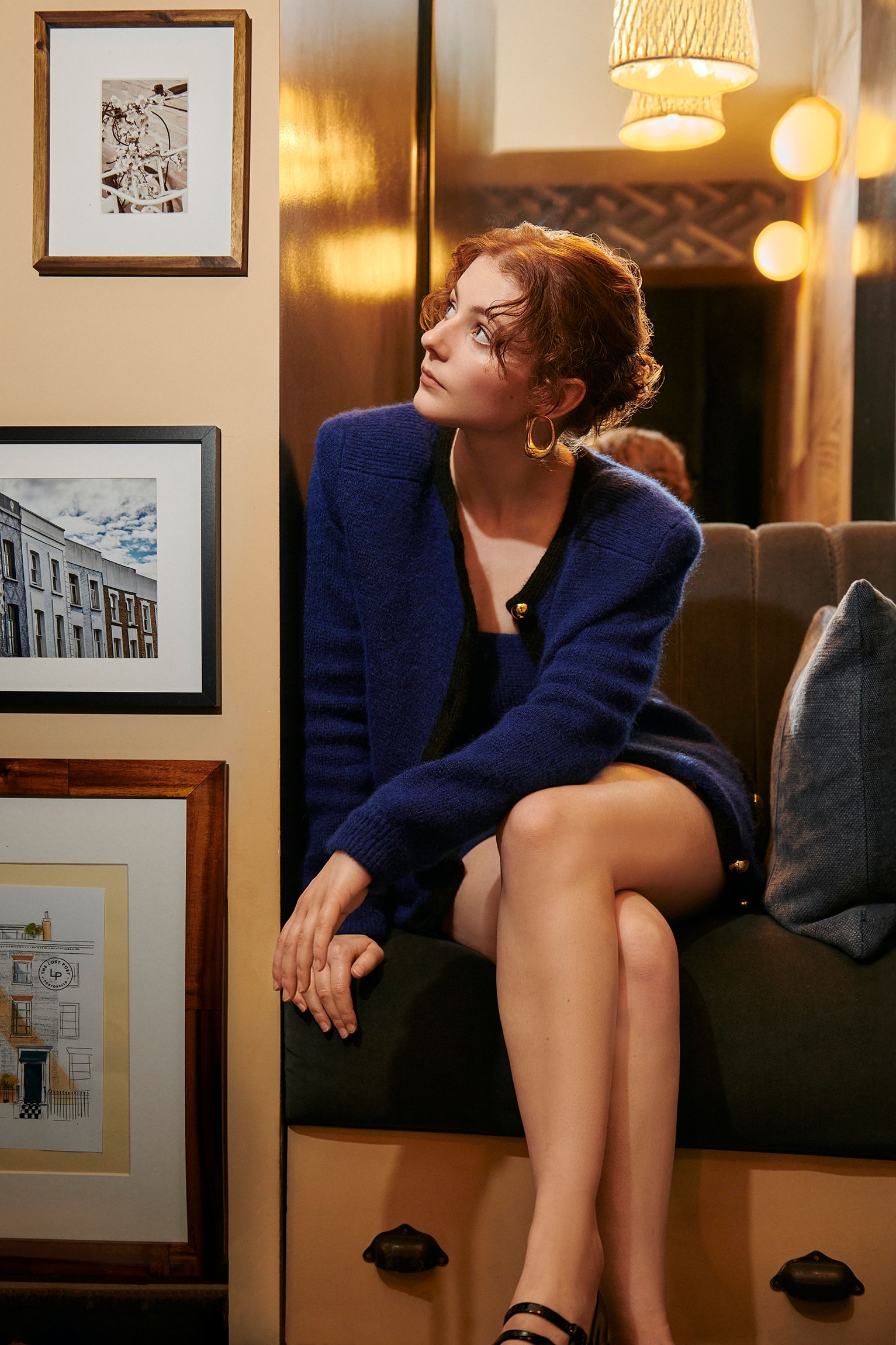
Forgive me, curiosity got the better of me, I had to ask. Your dad sounds like a complete legend by the way [laughs].
Oh my god, I think if my dad wasn’t who he is, I probably would have been sent straight back home [laughs].
I was a bit late to the party, as you’d already been in so many projects by then, but I first saw your work in Last Night in Soho, and I ended up seeing it two or three times.
Oh wow, thank you.
I have to ask this because you and obviously, Edgar, are both incredibly talented. Would you ever consider teaming up again on a future project down the line?
I’d absolutely love to, yeah. I mean, he’s done films in the past, like Sean of The Dead, what do they call the trilogy?
The Cornetto Trilogy!
Yeah. Edgar’s given different roles multiple times. So it’d be really fun to be able to do something like that with him. Maybe, yeah, I don’t know, maybe in a few years, when he’s got the next project up and running.
I’d love to work with Edgar again because he has a very unique, specific vision. We filmed that when I was 18. I don’t think I was fully aware of or appreciative of how he works and how specific his vision was. I’d love to work with him again, just to be able to actually watch him at work and observe how he goes about bringing things to life.
When we filmed Last Night in Soho, I was 18, and it was all such a rush. I didn’t think to just stand still and take note of what I was a part of. For that reason as well, I would love to work with him again.
Going back to Joy, you appear alongside the likes of Bill Nighy and James Norton, what did you take from working with these actors? There were many great people involved.
I think working with Bill, I mean he is an absolute icon. I was in shock and awe the entire shoot, that I was even sharing a scene with him. Apart from just how amazing he is at his job, him just as a person, he is so special. He is absolutely kind, loving, and really present. Like I said about Last Night in Soho, I was wrapped up in the work, character, and wasn’t taking note of where I was and who I was working with.
But Bill, he is present in his character but also present in the fact that we were all there together making something together. He was 100% focused and just enjoying working with a great team of people. He was singing and dancing the entire time and it was really special to see how he approached acting, his job, which was full of joy.
As you’ve been acting for 18 plus years, what has been one of the biggest lessons you’ve learnt so far?
I think what I was saying about Bill, just enjoying what it is that I do. It is so easy to get wrapped up in the stress of it all. It is really fast-paced and acting can be quite stressful. I am so privileged to be able to do this but as someone who is an introvert and gets overwhelmed very easily, it is a lot.
I think over the years, I’ve learned to enjoy each day on set and have fun with each scene. I often have to remind myself when I’m getting in my head like ‘oh, I didn’t do that very well, I’m not doing a very good job’, I just have to be like ‘enjoy it, you are playing’, and be present with the people you are collaborating with. Not to get too down by the stresses of it all.

Sweater Patou Skirt Samsoe Samsoe Earrings Thomas Sabo
Finally, what would you like to turn your hand to next when it comes to future roles?
Firstly, I don’t know. It is so hard to plan ahead, I’m not a future planner, I am an in this moment planner. So I am really excited to continue on in this career, hopefully for a very long time. I am really excited by each and every opportunity that comes my way and I hope they keep on coming.
I do really want to play a fairy; I have been putting this out there for years and want to continue to do so. If I can play a fairy, I’d be done, I would be satisfied.
I know you’ve done loads of interviews and I want to emphasise that you taking the time to chat right now, means a lot, so thanks, Thomasin.
Thank you, Cameron, I really appreciate that. It has been lovely to talk to you and you’ve had such great questions. You’ve really made me think [laughs].
Joy is available to stream globally on Netflix on November 22nd, 2024.
Follow Thomasin McKenzie at @thomasin.mckenzie on Instagram.
Interview Cameron Poole
Photography Rebecka Slatter
Styling Katie Somavia
Make Up Emma White Turle at The Wall Group using CHANEL Holiday 2024 Winter Tale Make-up Collection and No.1 de CHANEL Body Serum-In-Mist
Hair Sandra Hahnel at Caren using Ouai
Location The Lost Poet, London
Cover credit: Full look Celine

